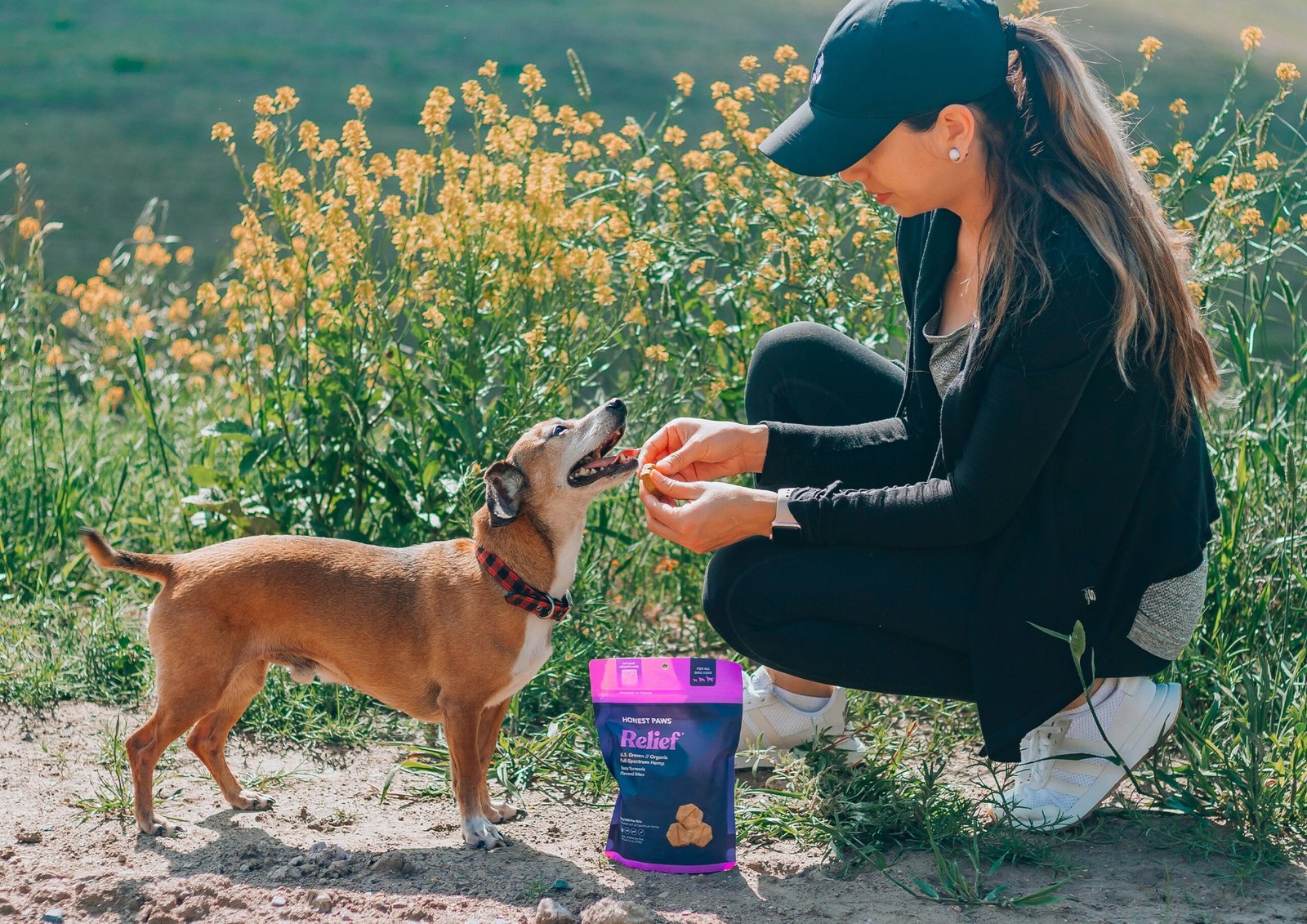Introduction
What Supplement should Senior Dogs take? becomes a more important question as your dog slows down, stiffens up, or starts showing the first signs of aging. Many owners feel overwhelmed by all the options—joint support, senior dog supplements, probiotics, omega-3 oils, brain health formulas, and more. But the truth is this: older dogs don’t need everything. They only need the right support, chosen with purpose and backed by real benefits.
I’ve seen many senior dogs transform with just a few targeted changes. A dog struggling with stiffness suddenly moves easier with the right mobility supplement. A dog losing focus becomes more alert thanks to a simple omega-3 routine. And for others, probiotics or a balanced multivitamin fill nutritional gaps that appear with age.
Before we jump into product recommendations or comparisons, I want to guide you through what truly matters—how supplements support mobility, cognition, digestion, and overall wellness in older dogs. Because when you choose wisely, you’re not just adding pills or powders to their bowl… you’re helping your senior dog stay active, sharp, and comfortable in their golden years.
Let me show you exactly which options are worth your time—and which ones you can skip.
By Seniordog-care.
This post may contain affiliate links. If you buy through these links, I may earn a small commission at no extra cost to you. As an Amazon Associate, I earn from qualifying purchases.
Table of Contents
Why Senior Dogs Need Different Supplements
Why Supplements Matter for Senior Dogs
When you start asking what supplements should senior dogs take, it’s usually because you’ve noticed subtle changes—slower walks, stiffer mornings, more naps, or a little confusion here and there. Aging naturally creates gaps in mobility, digestion, cognition, and overall wellness. The right supplements don’t cure aging, but they do help your dog stay comfortable, sharp, and active for as long as possible.
Most older dogs benefit from support in four main areas:
- Joint health: As cartilage wears down, supplements like glucosamine, chondroitin, and MSM reduce stiffness and protect movement.
- Cognitive support: Omega-3s and certain brain formulas help keep aging dogs more alert and focused.
- Digestive health: Probiotics balance the gut, support immunity, and improve stool quality.
- Overall nutrition: Senior dogs often absorb nutrients less efficiently, making multivitamins useful for filling the gaps.
Owners usually see the biggest improvements when they focus on what their dog actually needs, not what the label promises. A stiff dog needs joint support. A confused or anxious dog needs brain support. A dog with tummy issues needs probiotics. It’s targeted care—not guesswork.
In the next section, we’ll break down each supplement category so you can decide exactly which ones matter for your senior dog.
Types of Supplements Senior Dogs Benefit From Most
Every senior dog ages differently, but most experience similar changes—slower movement, weaker joints, digestive upset, or cloudy thinking. Understanding the main types of supplements helps you quickly decide what supplements should senior dogs take based on your dog’s biggest needs.
Here are the core categories that make the biggest impact on senior dogs:
Joint & Mobility Support
This is the most common — and often the most necessary — supplement for older dogs. Aging joints lose cartilage, and inflammation increases, making everyday movement harder.
These supplements usually include:
- Glucosamine
- Chondroitin
- MSM
- Turmeric/curcumin
- Green-lipped mussel
Dogs dealing with stiffness, joint pain, or slower walks almost always benefit here.
Omega-3 Fatty Acids
Omega-3s are incredibly powerful for senior dogs. They support:
- Brain health
- Skin and coat
- Joint comfort
- Heart health
- Lower inflammation
If your dog has arthritis, itchy skin, or cognitive decline, omega-3s are a must.
Probiotics & Digestive Support
Aging affects gut bacteria, which impacts digestion, immunity, and even mood.
Probiotics help with:
- Gas, diarrhea, constipation
- Sensitive stomach
- Immune system support
Many senior dogs with inconsistent stools do better within days of starting a good probiotic.
Brain & Cognitive Support
Older dogs can experience confusion, disorientation, pacing, or increased anxiety.
Cognitive supplements help support memory, focus, and calmness with ingredients like:
- DHA
- Vitamin E
- L-carnitine
- SAMe
- Ginkgo biloba
If your senior dog seems “lost” or forgetful, this category matters.
Multivitamins
Some senior dogs don’t eat consistently or don’t absorb nutrients as efficiently. A multivitamin fills the gaps.
They’re especially helpful for dogs that:
- Have reduced appetite
- Eat homemade diets
- Are picky eaters
- Need overall wellness support
Antioxidants
These help protect cells from aging damage and support long-term health. You’ll often see ingredients like blueberries, vitamin C, turmeric, green tea extract, or coenzyme Q10.

Essential Supplements Your Senior Dog Should Take
Every senior dog has different needs, but a few supplements consistently stand out because they support the most common age-related problems. When owners ask what supplements should senior dogs take, these are the ones that deliver the biggest, most noticeable improvements in mobility, comfort, digestion, and overall quality of life.
Below you’ll find the essential categories—with two top product options in each—so you can choose what fits your dog’s specific challenges.
Joint & Mobility Support
Most senior dogs struggle with stiffness, slower mornings, or discomfort after walks. Good mobility supplements help protect cartilage, reduce inflammation, and make movement easier.
Recommended Products:
- Innovet Pet Advanced Joint & Mobility Chews – Strong formula with green-lipped mussel and turmeric.
- Doggie Dailies Advanced Hip & Joint Chews (Amazon) – Easy-to-give chews with glucosamine, chondroitin, and MSM.
Omega-3 Fatty Acids
Omega-3s support joints, brain health, heart function, and skin. Many dogs show improved mobility and mental clarity within weeks.
Recommended Products:
- Zesty Paws Pure Wild Alaskan Salmon Oil (Amazon) – High EPA/DHA levels for mobility and skin.
- Innovet PurCBD + Omega Oil – Combines omega-3 benefits with anti-inflammatory support.
Probiotics & Digestive Support
Older dogs often deal with gas, loose stools, or inconsistent digestion. Probiotics help stabilize the gut and improve immune function.
Recommended Products:
- Purina FortiFlora (Amazon) – Vet-trusted probiotic for sensitive stomachs.
- Honest Paws Pre+Probiotic Powder – Gentle, effective, and easy to mix into meals.
Cognitive Support (Brain Health)
If your dog seems confused, anxious, or forgetful, cognitive supplements can help maintain focus and reduce signs of canine cognitive dysfunction.
Recommended Products:
- Nutramax Senilife (Amazon) – Supports memory, awareness, and cognitive function.
- VetriScience Senior Vitality Pro – Strong antioxidant blend for aging brains.
Senior Multivitamin
Not all older dogs absorb nutrients well. Multivitamins help cover nutritional gaps, especially for picky eaters or dogs with low appetite.
Recommended Products:
- PetHonesty 10-in-1 Senior Dog Multivitamin – Covers joints, digestion, skin, and immunity.
- NaturVet Senior Advanced Daily Vitamins – Balanced formula for overall senior wellness.
Bella’s Comeback Story: From Stiff and Sluggish to Spirited and Strong
When Bella, a 12-year-old Beagle with big brown eyes and an even bigger heart, started slowing down, her owners chalked it up to old age. She slept most of the day, hesitated at the stairs, and no longer greeted guests with her usual enthusiastic tail wags. “It just felt like we were slowly losing the spark in her,” her owner, Mia, recalled.

But something didn’t sit right. Bella wasn’t just aging — she was uncomfortable.
After a vet check-up revealed mild arthritis and signs of cognitive decline, Mia dove into research. That’s when she discovered the role supplements can play in senior dog care.
They started Bella on a combination of glucosamine and chondroitin for her joints and fish oil rich in DHA for brain health. Within just a few weeks, the change was undeniable.
“She started following us around the house again, even wagging her tail when we grabbed the leash. It was like watching her come back to life,” Mia said.
Bella’s energy returned. She started playing with her toys again and even tackled her favorite walking trail — something she hadn’t done in over a year.
Adding a probiotic blend also helped ease her occasional digestive issues, making mealtimes smoother and more enjoyable for both Bella and her humans.
Today, Bella is still a senior dog — but one with a spark in her step and light in her eyes. Supplements didn’t just help her live longer — they helped her live better.
How to Choose the Right Supplements for Your Senior Dog
Choosing the right supplements can feel overwhelming with so many options on the market. The question “what supplements should senior dogs take” doesn’t have a one-size-fits-all answer—each dog’s needs depend on age, health, mobility, and diet. Here’s a practical, step-by-step approach to making the best choice for your senior dog.
1. Assess Your Dog’s Needs
Start by observing your dog’s behavior and health:
- Mobility issues or stiffness → prioritize joint & mobility supplements.
- Cognitive changes → consider brain and cognitive support formulas.
- Digestive problems → look for probiotics and digestive enzymes.
- Dry skin or inflammation → omega-3 fatty acids can help.
- Poor appetite or picky eating → a multivitamin may fill nutritional gaps.
2. Consult Your Veterinarian
Even high-quality supplements should be introduced under guidance. Your vet can:
- Recommend safe dosages.
- Check for interactions with medications.
- Help determine which supplements are truly necessary.
3. Choose Reputable Brands
Not all products are created equal. Look for:
- Transparent ingredient lists.
- Vet-backed formulas.
- Positive reviews from pet owners and credible sources.
4. Start Slowly and Monitor Results
Introduce one supplement at a time to see how your dog responds. Watch for:
- Improved mobility or reduced stiffness.
- Better digestion and stool consistency.
- More alertness or improved cognitive function.
- Increased energy and overall well-being.
5. Avoid Overloading
More supplements aren’t always better. Too many products can be unnecessary or even harmful. Focus on the essentials that address your dog’s specific needs.
By following these steps, you can make informed decisions, avoid wasting money, and give your senior dog the targeted support they truly need.

Comparison Table
| Supplement Type | Recommended Products | Key Benefits | CTA |
|---|---|---|---|
| Joint & Mobility Support | Innovet Pet Advanced Joint & Mobility Powder | Supports cartilage, reduces stiffness, improves movement | Check it on Innovet Pets |
| Doggie Dailies Advanced Hip & Joint Chews | Easy-to-give chews with glucosamine & MSM | Buy on Amazon | |
| Omega-3 Fatty Acids | Zesty Paws Pure Wild Alaskan Salmon Oil | Supports joints, brain, heart & skin | Shop on Amazon |
| Innovet PurCBD + Omega Oil | Combines omega-3 with anti-inflammatory support | Check it on Innovet Pets | |
| Probiotics & Digestive | Purina FortiFlora | Supports digestion & immune health | Buy on Amazon |
| Honest Paws Pre+Probiotic Powder | Gentle, effective gut support | Shop Honest Paws | |
| Brain & Cognitive Support | Nutramax Senilife | Supports memory & awareness | Buy on Amazon |
| VetriScience Senior Vitality Pro | Antioxidant blend for cognitive health | Check VetriScience | |
| Multivitamins | PetHonesty 10-in-1 Senior Dog Multivitamin | Supports joints, digestion, skin & immunity | Shop PetHonesty |
| NaturVet Senior Advanced Daily Vitamins | Balanced formula for overall senior wellness | Check NaturVet |
FAQ
1. What supplements should senior dogs take for joint pain?
Joint and mobility supplements with glucosamine, chondroitin, MSM, or turmeric help reduce stiffness and support cartilage in senior dogs.
2. Do senior dogs need daily supplements?
Not every dog needs a supplement every day, but targeted support—like joint, omega-3, or probiotics—can help maintain health and comfort in aging dogs.
3. Can supplements improve my senior dog’s cognitive function?
Yes. Brain health supplements containing DHA, vitamin E, or antioxidants help older dogs stay alert, reduce confusion, and maintain memory.
4. Which natural supplements are best for senior dogs?
Omega-3 fatty acids, turmeric, and probiotics are among the most effective natural supplements for mobility, inflammation, and digestion support.
5. How do I know which supplements my senior dog really needs?
Observe your dog’s mobility, energy, digestion, and behavior. Consult your veterinarian and start with one targeted supplement at a time for best results.
6. Are multivitamins necessary for older dogs?
Multivitamins are helpful for dogs that eat inconsistently, have nutritional gaps, or need overall wellness support. They complement a balanced diet and targeted supplements.
Final Thoughts
As your dog enters their golden years, their needs shift — and so should your approach to their care. Supplements aren’t a magic fix, but when chosen wisely and used consistently, they can make a huge difference in mobility, mood, digestion, and overall quality of life.
From joint support to brain health and immunity, the right supplements help your dog feel more like themselves again — active, alert, and comfortable.
Max’s transformation, Bella’s renewed energy — these stories aren’t rare miracles. They’re examples of what’s possible when you tune into your dog’s changing needs and take small, thoughtful steps.
Ready to support your senior dog with the care they deserve? Start by talking to your vet, reviewing this guide, and picking one or two areas to focus on. Your dog may not be able to thank you in words, but you’ll see it in every tail wag, comfortable nap, and eager trot at your side.
Your senior dog still has so much love and life to give — let’s make sure they can enjoy it fully.
Want more science-backed tips for senior dog care?
Join our free email series and get weekly insights on nutrition, supplements, and proven ways to help your senior dog thrive — straight from vets, researchers, and real dog owners.
Ready to give your senior dog the support they deserve? Check out our recommended supplements for mobility, brain health, and immunity — carefully selected to help your dog stay active, alert, and comfortable.
Sources
- https://www.akc.org/expert-advice/health/senior-dog-health/
- https://www.petmd.com/dog/nutrition/which-supplements-does-your-senior-dog-need
- https://vcahospitals.com/know-your-pet/senior-dog-nutrition
- https://www.whole-dog-journal.com/health/aging-dogs-supplements-and-nutrition/
- https://www.akc.org/expert-advice/nutrition/best-supplements-for-senior-dogs/




Pingback: 10 Signs Your dog Might Be in pain (And What To Do) - seniordog-care
Pingback: Best Supplements For Senior Dogs - seniordog-care